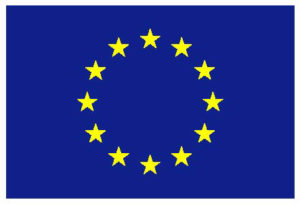Increased Trust and Confidence in the Digital Single Market
As the global economy is rapidly becoming digital, ICT is no longer a sector but the foundation of innovative economic systems. These changes bring immense opportunities for innovation, growth and jobs and, therefore, the European Commission has identified the completion of the Digital Single Market (DSM) as one of its priorities. The potential contribution to European GDP from achieving such a fully functioning DSM has been estimated at 415 billion Euros.
On the other hand, a basic element for economic sustainability is trust; there is a strong correlation between the level of trust and economic growth and prosperity. Indeed, results from recent surveys about DSM obstacles show that concerns about personal data being misused are ranked among the most frequently reported. The DSM, and digital economy, faces setbacks because of the privacy risks.
In view of the above, one of the most important anticipated impacts of BPR4GDPR is to increase the users’ confidence in ICT products and services, as well as trust to service providers. To this end, it will bring innovative tools that will facilitate the implementation of GDPR provisions, in terms of comprehensive technical and organisational measures, thus achieving compliance and a high level of protection.
It should be stressed that the BPR4GDPR solutions target in particular SMEs, that amount for more than 90% of European enterprises. Therefore, considering also the large customer base of project partners, the cloud-based, as-a-service provision model that implies immediate applicability, as well as the marketing and dissemination strategy of the project, it is expected to quickly reach the critical mass of BPR4GDPR solutions deployment in operational environments. Indeed, the BPR4GDPR consortium has the appropriate capacity in terms of customer base, geographical distribution across Europe—and beyond, and type of business model (industry, innovation, service provision, consulting, law) that will be enablers for fast and broad diffusion.
An important aspect towards achieving increase of trust at considerable scale is the Compliance-as-a-Service (CaaS) concept BPR4GDPR introduces. Supported by innovative project tools (e.g., process re-engineering automation) and the compliance toolkit of privacy-enhancing mechanisms, compliance will be delivered out-of-the-box to customers of cloud-based soultions. It should not be neglected here the contribution of leveraging CRM/xRM functionality as a trust enabler; by making compliance an indispensable part of the relation between providers and customers, mainly in terms of data subjects rights’ enforcement, data protection and compliance thereof will not only be enforced, but also experientially manifested, thus increasing customer trust.
An additional contribution of BPR4GDPR in this context will be its awareness-raising strategy, by all available dissemination means, as well as the BPR4GDPR User Community, that will be leveraged also for the assessment of social aspects of the BPR4GDPR results.

